To grasp the essence of Ihor Kozlovskyy—an indelible phenomenon—one must envision a central core from which orbits extend like Saturn’s rings. These rings, countless in number, represent his students and their own disciples. On September 6, 2023, this extraordinary man—a religious scholar, scientist, historian, philosopher, spiritual guide, and a truly remarkable figure—departed from his earthly form. The term “died” hardly seems adequate; Kozlovskyy himself viewed death as merely a transition, a shift that preserves connection. His vitality was undeniable, even in the direst circumstances. Creating life is challenging in peaceful times, but doing so on the brink of existence and oblivion, as Ihor Kozlovskyy did while imprisoned by the militants of the Russian-installed so-called “Donetsk People’s Republic” (DPR), is an entirely different feat.
The elite
In Ukraine, the concept of “elites” is often thrown around in conversation, but what does it really mean? Who truly belongs to this group? While the term frequently surfaces in political debates, it doesn’t necessarily indicate a firm grounding in values. Without a strong set of principles that someone won’t compromise or betray, can they genuinely be considered elite? Being elite is more than a title—it’s a conscious choice, a level of responsibility and maturity, not something that can be measured by the numbers on an ID. Ihor Kozlovskyy embodied this idea of the elite, deeply rooted in his principles and born in eastern Ukraine. To detail his life would require endless space, both physical and virtual. Yet, I will attempt to sketch a few portraits of the man who stood as a symbol of what it truly means to be elite.
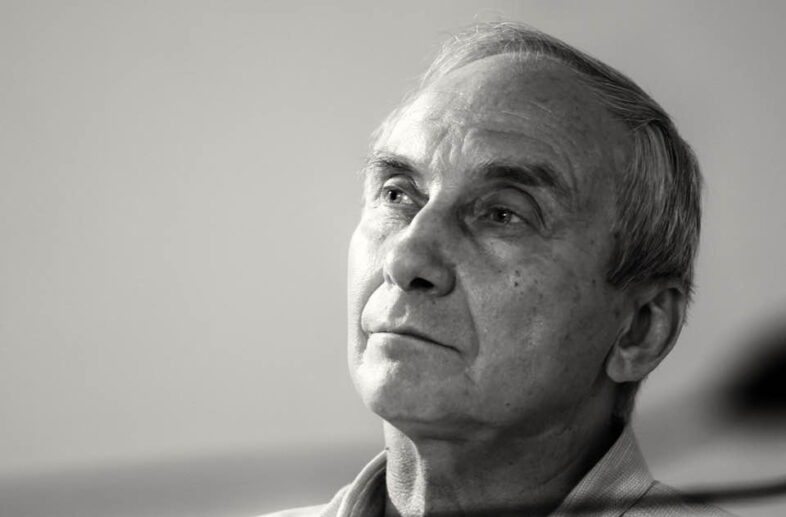
Photo: Ihor Kozlovskyy | Facebook
Ihor Kozlovskyy was born in Makiivka, Donetsk region, and as he often reflected, his roots traced back to ancient Cossack heritage. This connection seemed to resonate within him throughout his life—a warrior at heart who had chosen peace. In his youth, he served in the army along the border with Iran, an experience that deeply shaped his worldview. During his time there, he wrote numerous sketches, immersing himself in the local culture and gaining invaluable insights.
Later, Kozlovskyy attended Donetsk State University, where he graduated with honours from the Faculty of History. His university days were filled with adventurous tales, like the time he and a friend decided to walk from Donetsk to Crimea—an audacious plan they actually pulled off. At the time, Kozlovskyy exuded a free-spirited charisma, something of a hippie, with a magnetism that drew people in. After university, his career took him to the Donetsk Regional Executive Committee and later to the Donetsk Regional State Administration. His roles varied, but they always involved religion in one form or another, a reflection of his deep commitment to understanding and bridging spiritual divides.
Sharing Wi-Fi
In Ukraine’s history, there was the legendary and enigmatic figure of Hryhorii Skovoroda, a philosopher and teacher whose influence stretched far beyond academic circles. He shaped the minds of countless students who would go on to impact the fate of Europe and, in many ways, the leadership of the Russian Empire. Though Skovoroda’s presence is shrouded in time, a careful observer can still discern a level of dedication in his legacy that transcends rational explanation. What made him so extraordinary? He was deeply present—so much so that his students were forever transformed by it. Skovoroda’s unique blend of profound knowledge, personal freedom, mindful attention, and a specific indefinable energy left an enduring mark on those who followed him.
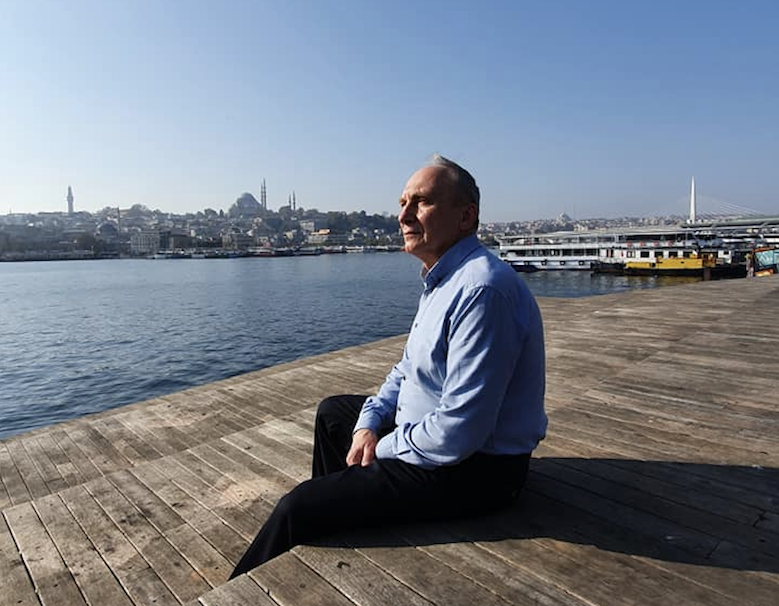
Photo: Ihor Kozlovskyy | Facebook
Ihor Kozlovskyy was our modern-day Skovoroda. Beyond his academic role at the university, Kozlovskyy delivered countless lectures across Ukraine and abroad, skillfully blending theory with practice. His seminars covered an extraordinary range of topics, from the nuances of spices and Ayurveda to advanced practices in yoga and the mystical teachings of various world cultures. He wasn’t just a scholar or a theorist; his approach was holistic, much like Skovoroda’s, rooted in a way of living and understanding the world that reached beyond mere intellectualism. To me, Ihor Kozlovskyy was a great “router”, and this Wi-Fi touched the hearts and minds that were ready. He never insisted or imposed his wisdom; people came to him on their own, always at the right time.
Once, after his death, I spoke with some of his students who had studied and practised with him since his days in Donetsk. They recalled how every religious community considered him one of their own because he knew their teachings so well that it was hard not to see him as part of them—Islam, Christianity, the Sufi branch, Buddhism, Hinduism, and many others. Ihor Kozlovskyy had a phenomenal memory, giving the impression that he was recalling knowledge he had long possessed rather than learning it anew. And he always shared generously.
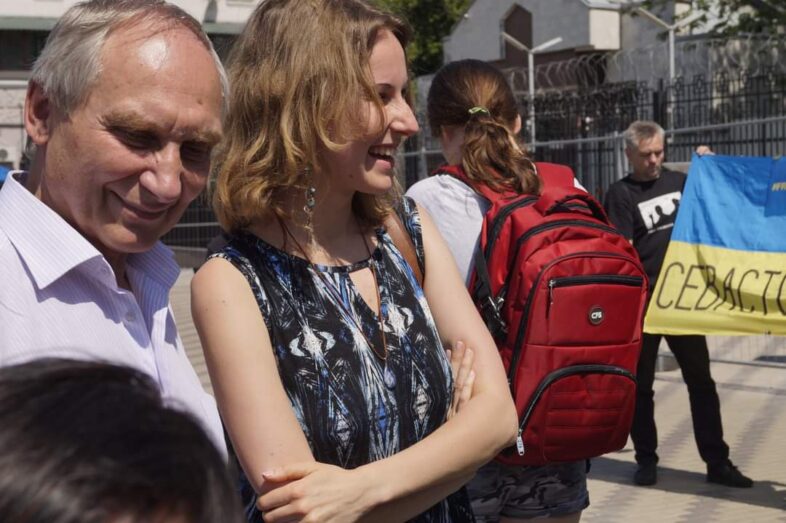
Photo: Olena Pavlova
Imprisonment
For decades, the Russian Empire, in all its forms, has sought to destroy the Ukrainian people. Its primary target has always been the intellectual and cultural elite—those who held influence, spread knowledge, and gathered around them devoted, talented students. The mission of this bloodthirsty regime has always been to dismantle the nation’s foundation, not just by killing its leaders but by severing the connections they nurtured, breaking them morally and spiritually. The methods remain unchanged, as evident in today’s full-scale invasion, with the genocidal tactics of the Russian totalitarian regime and its collaborators echoing the same brutal intentions as those faced by Ihor Kozlovsky’s ancestors.
It’s difficult to fathom the situation: you’re in Donetsk with your eldest son, who has a serious medical condition, as armed and uncontrolled terrorists gradually seize control of the city. One day, you step out to take out the trash—and never return. Your apartment is ransacked, and only through the intervention of close friends is your son rescued. This was the terrifying reality when militants from the so-called “DPR” abducted Ihor Kozlovskyy, throwing him into the basements of the MGB, the sham Ministry of State Security. Nearly two years in captivity, cut off from his family, subjected to horrific conditions, torture, interrogations, and forced to witness the despair and destruction of others—it’s a reality almost impossible to truly grasp.
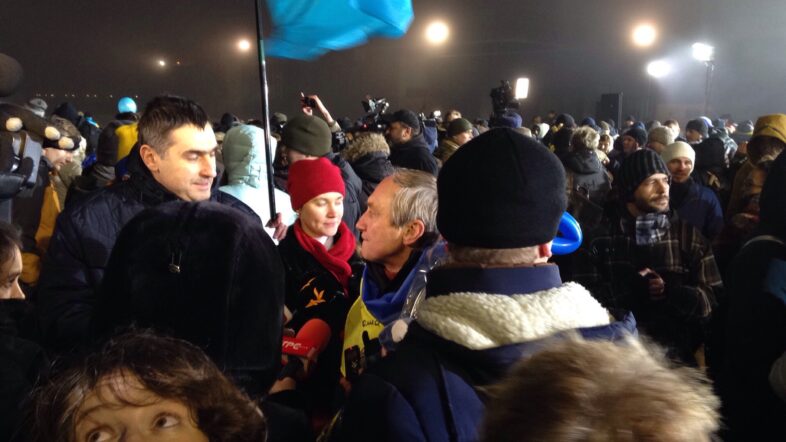
Photo: Kateryna Gladka
I once read the memoirs of Les Kurbas, the visionary Ukrainian director and creator of a new theatre movement in the 1920s, about his time spent in the Solovki camp, where he was sent to die by the same Russian power—this time under the guise of the Soviets. Kurbas had a unique way of connecting with people in the camp, sparking deep internal transformations. His influence became so strong that, at one point, they even tried to forbid him from speaking to other prisoners. Why? Because it wasn’t just conversation—it was a dialogue that tapped into something deeper, with pure energy behind his words. People of great spirit see beyond the surface, beyond words or affiliations—they see the essence of a person. This is what true illumination is. And once someone experiences that, change becomes inevitable. Ihor Kozlovskyy had a similar effect on those around him. Many, from hardened criminals to broken souls caught by the Russians, came to him as if seeking a confession.
After his release from captivity, he once told me during one of our conversations that when he finally received his falsified case file, he could tell from the descriptions, details, and fragments that people from his university circle had informed on him. The parallels with the well-known biblical story are unmistakable. Now imagine—on top of enduring inhuman torture—realising that someone close to you had betrayed you. Yet, he never gave in to bitterness.
Instead of harbouring resentment or seeking revenge, he carried with him a profoundly different experience. He often shared that when they tortured him, broke his bones, and covered his head with a bag, there came a moment when he felt a smile. A smile! He realised he was no longer afraid to die, which meant they could no longer reach him. From that point on, he made an inner, willful choice to live—not out of fear but because of his love for his family, his students, his friends, and his country. From that moment, his spirit became invincible. And in that, the executioners had already lost. They couldn’t grasp what had truly happened.
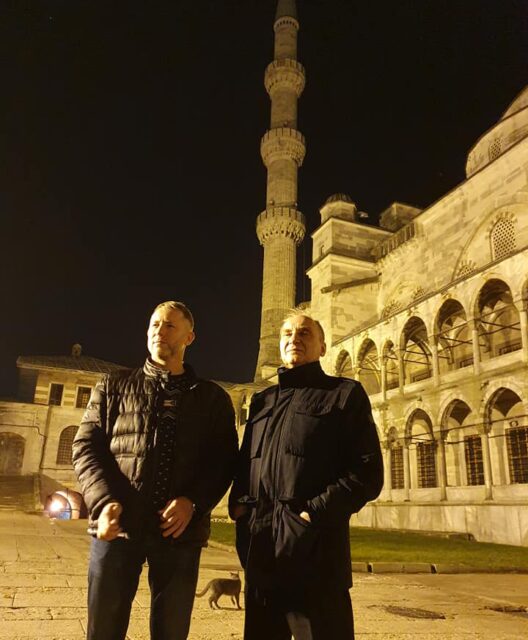
Photo: Natalia Dmytriyeva
Meanwhile, Ihor Kozlovskyy’s entire network of supporters—his students, friends, and family—worked tirelessly to secure his release. They found ways to exchange information, organised flash mobs, reached out to international human rights organisations, and amplified his case to the public. I recall writing a comprehensive article about Ihor and connecting with his former students, with whom I now practice yoga using his method and carry on his legacy. During my research, I spoke with Said Ismagilov, the then-mufti of Donetsk and one of Ihor’s students. Given Said’s position, he couldn’t act openly or involve influential Muslim families without risking his teacher’s safety. The Russian-backed militants could quickly fabricate accusations of “terrorism and radical Islamist ties” if public attention was drawn, potentially leading to a tragic end for Ihor. Despite these risks, Said’s eyes reflected his determination to help and his careful, faith-driven restraint.
Such a network of support could not be in vain. Eventually, Ihor Kozlovskyy was included in the exchange lists, marking a true New Year’s gift for all who had fought so hard for his release.
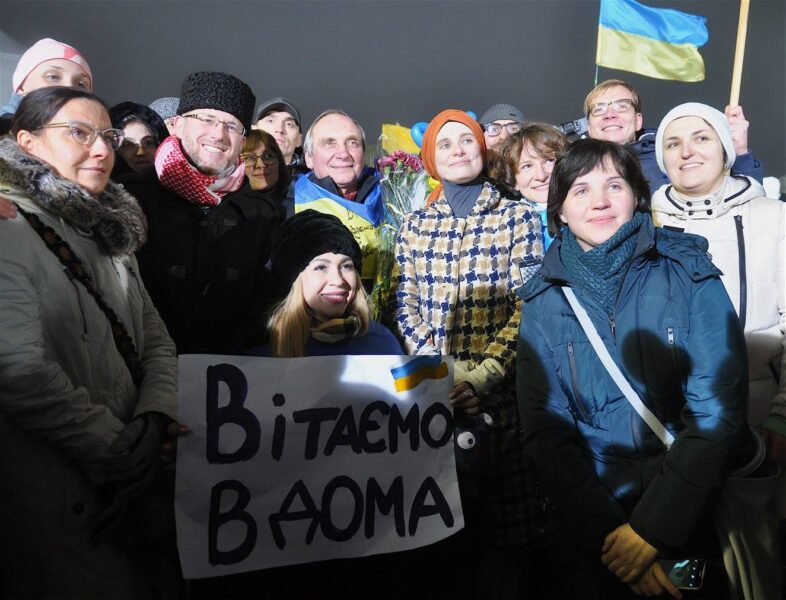
Photo: Vlad Sliusariev
Return and the debt of love
After his return, the teacher underwent only a brief rehabilitation period before diving back into a whirlwind of activities: lectures, meetings, poetry readings, efforts to free remaining political prisoners, international events, and religious studies. His schedule was packed, yet he always made time for a kind word or a personal touch. There was a remarkable sense of timing around him; he adhered to the demands of the present while keeping an eye on the eternal.
He often remarked that he felt indebted to love, overwhelmed by the outpouring of affection he received. I recall his first seminar after captivity focused on natkha-yoga. It combined deep theoretical insights with vigorous practice. He welcomed hugs, shared joy, and engaged in meaningful exchanges. It became clear to me how spiritual giants operate: they transform profound suffering into love. This doesn’t mean they condone evil or alter its nature—instead, by confronting reality head-on, they harness the energy and resolve to choose a path of light.
A year has passed, but his presence remains ever-felt. No matter what happens or when his name is spoken, his intangible presence is palpable. Even after his departure, he continues to unite people. His works are being reprinted, a testament to their enduring relevance, and his poetry written during captivity will soon be published. Most importantly, the connections he forged—the “rings from the centre”—remain unbroken.
Thus, the incredible journey goes on…

